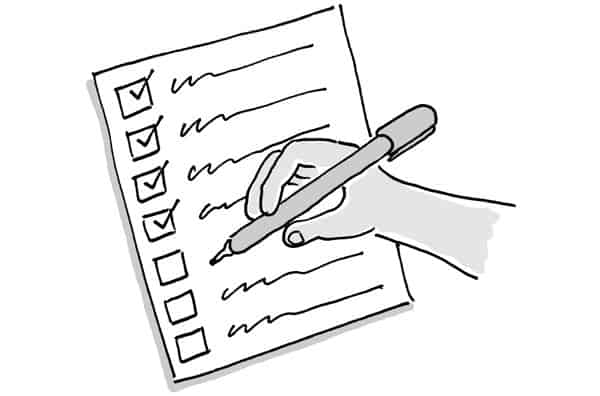A commonly held belief is that ‘making meaningful work’ means slaving away at a non-profit and being broke all the time. The opposite of that is working at big tech company on projects that are well paid, but not meaningful at all.
What if you could strike the perfect balance and do both?
The thing is, making meaningful work has different meanings depending on who you talk to. If you’re learning new skills, maybe you don’t mind exactly what project you’re working on. Maybe money isn’t an issue.
I recently spoke to one of my freelance coaching clients who needed to make an extra $750 a month, fast. She mentioned that in the past when she needed extra money, she’d rent her house out on Airbnb for long weekends. Although lucrative, bookings were intermittent and there was no guarantee of regular income.
When she used Airbnb to make extra income, she had to move her entire family and dog out of the house to stay with friends. A big hassle for everyone involved. It also meant she couldn’t work that weekend – because her office was at home.
A possible solution to this dilemma is to approach her existing employer for higher value work. She told me that she didn’t think her existing employer would give her the extra work, because they had just taken on another freelancer who was younger than her, getting paid more than her, and a specialist in a particular software.
From the outset, getting a raise from this employer sounds tricky, but read on for practical tips on how you could successfully build your case for a raise.
1. List what you’ve done
Many people fall into the trap of only focusing on the design work directly in front of them. It’s easy to forget to keep a record of success stories and “wins” you’ve had for the company. If you don’t record your wins, you could end up without any tangible examples to negotiate or leverage a pay rise.

How can you fix this? The first step is to look back through your last 6-12 months of “work wins” and write them down.
Here are a few examples of wins that you could use as a framework:
- Saved the company $12,000 over 6 months by completing a job that they would have had to outsource to a contractor/freelancer.
- Implementing a design solution to a problem that resulted in increased revenue of $5,000 (x300% increase) in one week.
- Conducted research on a potential solution that could save the company $1,000 per month over the next five years.
Existing employers don’t generally keep a list of your wins for the company, so it’s up to you to keep a record up your sleeve that you can use to negotiate at your review. When you do that, you have the proof you can go above and beyond, because you’ve already proved you can do it.
2. Be proactive
Most people expect their employer to tell them what projects are coming up in the future. That’s because employees on the whole are quiet. They tend to sleepwalk through their day job. They never complain, except telling themselves limiting self-beliefs like “they would never pay me that much, I’m only a one-woman company.”
But it’s up to you to be proactive. What I want you to do during your next catch up with your boss is ask them what projects are coming up in the future. Here’s an exact script you could use to do that:
“What projects are coming up in the future? And what are the best ways I can support you in implementing that work together, to get the desired outcome?”
Once you know what projects are coming up, you can be proactive about offering support. And you can work these projects into your wage negotiation. You will stand out as a valuable employee against 90% of your colleagues.
Examples you could include in your list:
- Short term projects: Scope discovery phase for projects X, Y & Z
- Medium term: Build testing into release we have Jira access for Central UX log
- Long term: Create/monitor/add CX activities in customer experience hub for each product
3. Ask for benefits other than a pay rise
Often, people only ask for a salary raise. It’s worth considering other negotiables available to you, such as time off, equity, training and bonuses.

When you only focus on a raise you risk losing out on other opportunities that can make your life easier. For example, if you have kids, you could negotiate more time off, or if you’re keen on learning new skills you could negotiate a training expense into your package.
Non-salary related benefits could include:
- Working remotely from home one or two days per week
- $200 per month towards training material
- $5,000 Bonus if Q4 target conversion rates met for project X
- An extra week off per year
Make sure you start thinking about any requests well before your interview, and that you have a well-defined rationale.
If you’re angling for a raise or coming up to a review, I recommend creating a document that addresses each of the examples above. Send it to your boss before your review so they have time to think it over. When you do that, ideally at least a month before your review – you make it easier for your boss to get a quick overview of your needs, increasing your chances they’ll say yes.
By completing 80% of the work to build your raise case before your review meeting, and giving your boss time to consider it – you raise yourself above the majority of other candidates and dramatically increase your chances of getting a positive for both of you. Adding instant kudos by being organised will single you as a top performer in your company.
We love talking about making meaningful work. Continue the conversation in the forums.





